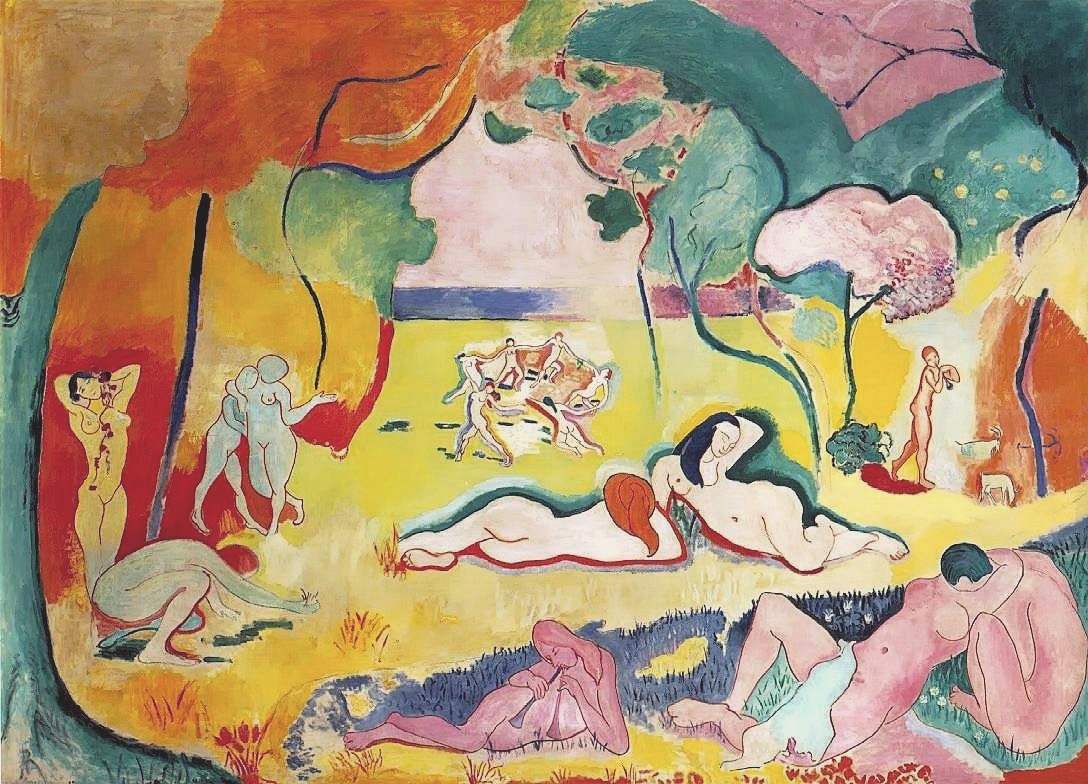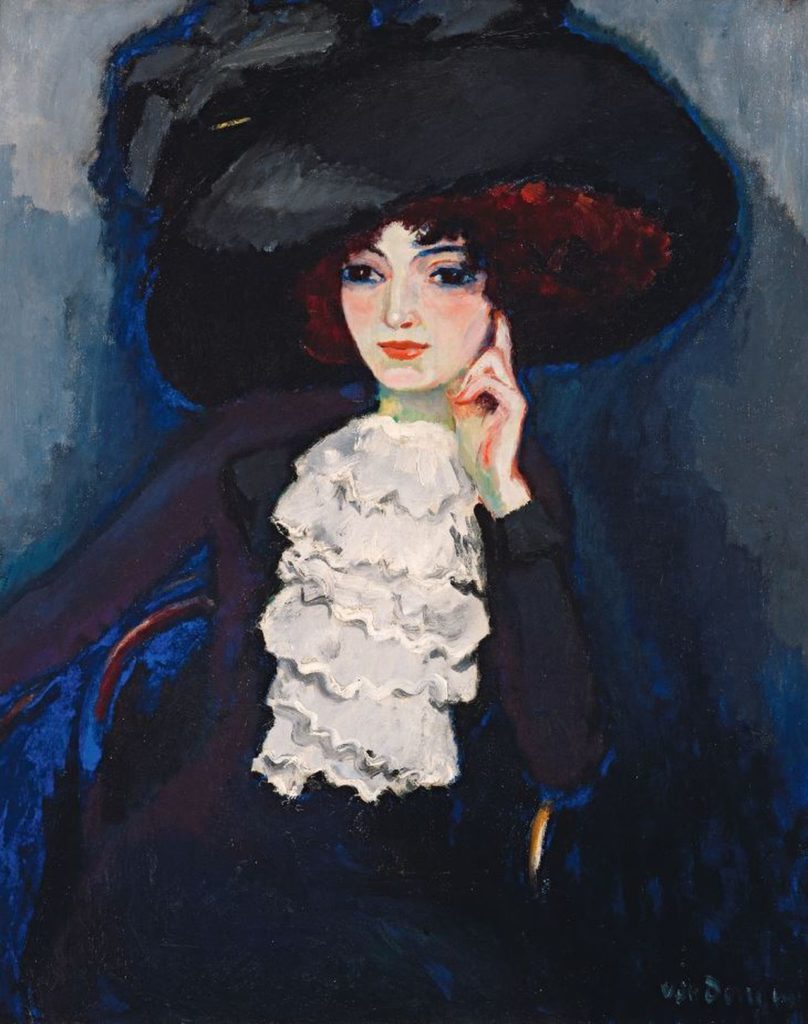Fauvism was a movement created by a group of French artists called Les Fauves (The Savages) at the beginning of the 20th century.

Image source: https://en.wikipedia.org/wiki/Fauvism#/media/File:Bonheur_Matisse.jpg
Fauvism was the first avant-garde art movement of the 20th Century. Spearheaded by a trio of young painters from Paris – Henri Matisse, André Derain, and Maurice de Vlaminck – it was characterized by intense, expressive, unnatural color, along with loose brushwork and simplified forms. It lasted few years – from 1904 to 1909 – and started from the idea of Impressionism not to paint what the painter sees, but to use colors to express a feeling or impression.
The Salon d’Automne 1905, where it all started
It all started when the critic Louis Vauxcelles, looking at a Renaissance sculpture displayed in the same room as the colorful paintings by Matisse and Derain, said was like seeing “Donatello chez les fauves” (Donatello among wild beasts), and so the movement took the name of Fauvism. The critic’s comment had a great impact on the public, giving attention to Matisse and the others, both positive and negative.

Image source: https://en.wikipedia.org/wiki/Maurice_de_Vlaminck#/media/File:SeineChatou.JPG
…when I put down a green, it doesn’t mean grass; and when I put down a blue, it doesn’t mean the sky” – Henri Matisse
For the Fauves colors were completely free, they didn’t think they had to represent the world the way it is as impressionists did. The color was used as a separate element from the usual descriptive and representational purpose. Color could also be used to project an emotional state and structure within a work of art by using unnatural representation. This helped create abstract forms. In their painting, we can see a world full of bright colors and chaotic strokes, and that’s also thanks to the new technologies that made it possible to create paint rich in pigment: Fauves used to take paint directly from the tube and apply it on the canvas with simple and rough strokes.

The end of the movement
Even if revolutionary for those ages, Fauvism lasted until 1909, but had the greatest impact on German Expressionism, especially on The Blue Rider and the Die Brücke groups. Most of its exponents had been part of the movement as a phase closed the chapter of Fauvism, many of them proceeded their studies and merged with other movements that would have had much more attention in the history of art.

Image source: https://search.creativecommons.org/photos/d08eb5b4-2651-45c8-adb5-6f832cca3711 by Renaud Camus
10 most known Fauves artists
- Henri Matisse (1869-1954, France)
- André Derain (1880-1954, France)
- Maurice de Vlaminck (1876-1958, France)
- Georges Braque (1882-1963, France)
- Henri Charles Manguin (1874-1949, France)
- Raoul Dufy (1877-1953, France)
- Cornelis Theodorus Maria ‘Kees’ van Dongen (1877-1968, Netherlands)
- Albert Marquet (1875-1947, France)
- Jean Dominique Antony Metzinger (1883-1956, France)
- Alice Bailly (1872-1938, Switzerland)

Info sources:
https://www.sothebys.com/en/articles/fauvism-7-things-you-need-to-know
https://en.wikipedia.org/wiki/Fauvism
